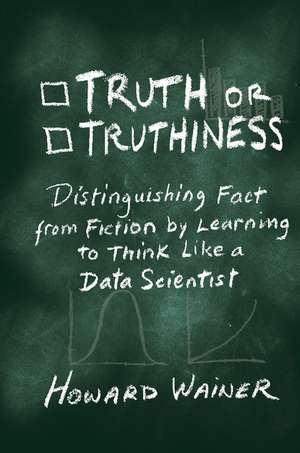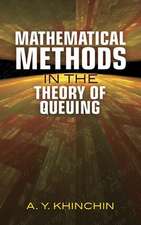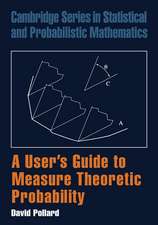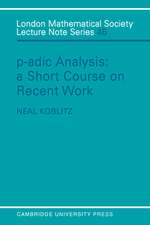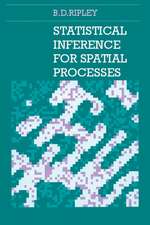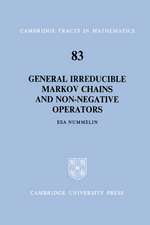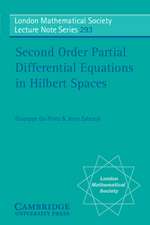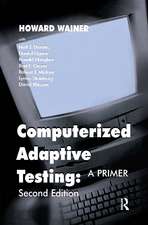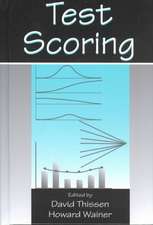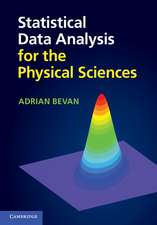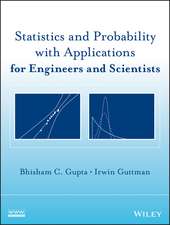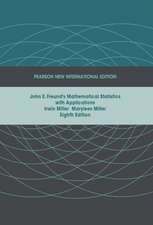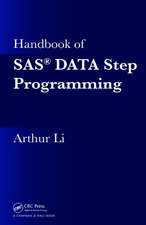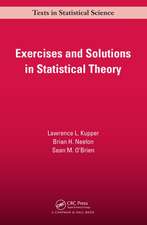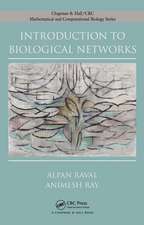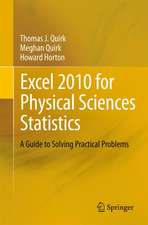Truth or Truthiness: Distinguishing Fact from Fiction by Learning to Think Like a Data Scientist
Autor Howard Waineren Limba Engleză Hardback – 30 noi 2015
Preț: 226.35 lei
Nou
Puncte Express: 340
Preț estimativ în valută:
43.31€ • 45.55$ • 35.79£
43.31€ • 45.55$ • 35.79£
Carte disponibilă
Livrare economică 27 martie-10 aprilie
Preluare comenzi: 021 569.72.76
Specificații
ISBN-13: 9781107130579
ISBN-10: 1107130573
Pagini: 232
Ilustrații: 52 b/w illus. 9 colour illus. 12 tables
Dimensiuni: 160 x 236 x 17 mm
Greutate: 0.46 kg
Editura: Cambridge University Press
Colecția Cambridge University Press
Locul publicării:New York, United States
ISBN-10: 1107130573
Pagini: 232
Ilustrații: 52 b/w illus. 9 colour illus. 12 tables
Dimensiuni: 160 x 236 x 17 mm
Greutate: 0.46 kg
Editura: Cambridge University Press
Colecția Cambridge University Press
Locul publicării:New York, United States
Cuprins
Part I. Thinking Like a Data Scientist: 1. How the rule of 72 can provide guidance to advance your wealth, your career and your gas mileage; 2. Piano virtuosos and the four-minute mile; 3. Happiness and causal inference; 4. Causal inference and death; 5. Using experiments to answer four vexing questions; 6. Causal inferences from observational studies: fracking, injection wells, earthquakes, and Oklahoma; 7. Life follows art: gaming the missing data algorithm; Part II. Communicating Like a Data Scientist: 8. On the crucial role of empathy in the design of communications: genetic testing as an example; 9. Improving data displays: the media's, and ours; 10. Inside-out plots; 11. A century and a half of moral statistics: plotting evidence to affect social policy; Part III. Applying the Tools of Data Science to Education: 12. Waiting for Achilles; 13. How much is tenure worth?; 14. Detecting cheating badly: if it could have been, it must have been; 15. When nothing is not zero: a true saga of missing data, adequate yearly progress, and a Memphis charter school; 16. Musing about changes in the SAT: is the college board getting rid of the bulldog?; 17. For want of a nail: why worthless subscores may be seriously impeding the progress of western civilization.
Recenzii
'This book is like the proverbial bag of potato chips. It's impossible to stop reading after just one of its fun and thought-provoking examples of statistical reasoning.' Andrew Gelman, Columbia University, New York
'Howard Wainer persuasively argues that you cannot be an informed citizen unless you understand the new data science. Using examples and anecdotes from education, medicine, and elsewhere, he arms readers with tools they can use to make better decisions and a better world. And he does it with the ease, charm, and brilliance of the originator of truthiness.' Arthur E. Wise, President Emeritus, National Council for the Accreditation of Teacher Education
'[This is] compelling reading on contemporary topics that exemplifies how to think clearly about the busy world around us … Wainer gets more clever over the years, finding deeper anecdotes, discovering better quotes, and writing with more grace than ever.' Ben Shneiderman, University of Maryland
'Wainer has taken a leap forward with his new book, Truth or Truthiness. He has shown that he can take on complex issues using the basic premise that our new societal norm addresses policy solely through inference while lacking supportive evidence. With his usual interesting and direct style, Wainer looks at this lack of data support in examining societal issues, especially education. This is truly a compelling read and I think should be required reading for those who set educational policy.' Kurt Landgraf, President and CEO, Educational Testing Service, 2000–2013
'Howard Wainer was an expert witness in cases where I defended public school teachers who were accused of changing students' answers on standardized tests. I implored him to explain his theories in terms that would be understandable to lay people. Truth and Truthiness makes clear that he took this to heart.' Keith J. Zimmerman, Kahn, Smith and Collins, P. A., Baltimore
'… at a time when PolitiFact's 'Truth-O-Meter' provides an essential guide to politicians' stump speeches, Wainer's book is welcome indeed. It is perhaps especially relevant in a divisive election year, when evidence, truth, and expertise seem under assault and yet desperately needed … [Wainer's] examples form a convincing argument that no matter how intractable a problem seems, careful use of data can help sort things out.' Christopher J. Phillips, Science
'Such a book is desperately needed, given the prevalence of 'truthiness' - a term coined by the comedian Stephen Colbert to mean things that are 'felt to be true … without regard to evidence, logic, intellectual examination or facts' … To paraphrase one of the quotes the author likes to make frequent use of, what you get here is not simply tricks of the trade but the trade itself. Wainer has deep experience of applying statistical thinking to societal questions and he is the kind of master statistical craftsman and communicator at whose feet we all wish we could learn.' Paul Craze, Significance
'Truth or Truthiness offers the greater value to those engaged in policy-relevant research.' Jeffrey Mazo, Survival: Global Politics and Strategy
'Author Wainer crusades on behalf of demanding evidence for a statistical claim, from either a randomized controlled experiment or post-hoc matching of naturally-occurring groups in an observational study, and he concentrates on how to handle missing data.' Paul J. Campbell, Mathematics Magazine
'This is an excellent book … made up of four sections of essays on a unique topic but section-common theme … All in all this is an engaging slender volume with intellectual heft.' Malcolm James Ree, Personnel Psychology
'... well written and well produced ...' Owen Toller, The Mathematical Gazette
'Howard Wainer persuasively argues that you cannot be an informed citizen unless you understand the new data science. Using examples and anecdotes from education, medicine, and elsewhere, he arms readers with tools they can use to make better decisions and a better world. And he does it with the ease, charm, and brilliance of the originator of truthiness.' Arthur E. Wise, President Emeritus, National Council for the Accreditation of Teacher Education
'[This is] compelling reading on contemporary topics that exemplifies how to think clearly about the busy world around us … Wainer gets more clever over the years, finding deeper anecdotes, discovering better quotes, and writing with more grace than ever.' Ben Shneiderman, University of Maryland
'Wainer has taken a leap forward with his new book, Truth or Truthiness. He has shown that he can take on complex issues using the basic premise that our new societal norm addresses policy solely through inference while lacking supportive evidence. With his usual interesting and direct style, Wainer looks at this lack of data support in examining societal issues, especially education. This is truly a compelling read and I think should be required reading for those who set educational policy.' Kurt Landgraf, President and CEO, Educational Testing Service, 2000–2013
'Howard Wainer was an expert witness in cases where I defended public school teachers who were accused of changing students' answers on standardized tests. I implored him to explain his theories in terms that would be understandable to lay people. Truth and Truthiness makes clear that he took this to heart.' Keith J. Zimmerman, Kahn, Smith and Collins, P. A., Baltimore
'… at a time when PolitiFact's 'Truth-O-Meter' provides an essential guide to politicians' stump speeches, Wainer's book is welcome indeed. It is perhaps especially relevant in a divisive election year, when evidence, truth, and expertise seem under assault and yet desperately needed … [Wainer's] examples form a convincing argument that no matter how intractable a problem seems, careful use of data can help sort things out.' Christopher J. Phillips, Science
'Such a book is desperately needed, given the prevalence of 'truthiness' - a term coined by the comedian Stephen Colbert to mean things that are 'felt to be true … without regard to evidence, logic, intellectual examination or facts' … To paraphrase one of the quotes the author likes to make frequent use of, what you get here is not simply tricks of the trade but the trade itself. Wainer has deep experience of applying statistical thinking to societal questions and he is the kind of master statistical craftsman and communicator at whose feet we all wish we could learn.' Paul Craze, Significance
'Truth or Truthiness offers the greater value to those engaged in policy-relevant research.' Jeffrey Mazo, Survival: Global Politics and Strategy
'Author Wainer crusades on behalf of demanding evidence for a statistical claim, from either a randomized controlled experiment or post-hoc matching of naturally-occurring groups in an observational study, and he concentrates on how to handle missing data.' Paul J. Campbell, Mathematics Magazine
'This is an excellent book … made up of four sections of essays on a unique topic but section-common theme … All in all this is an engaging slender volume with intellectual heft.' Malcolm James Ree, Personnel Psychology
'... well written and well produced ...' Owen Toller, The Mathematical Gazette
Descriere
The author evaluates the evidence, or lack thereof, supporting claims in many fields, with special emphasis in education.
